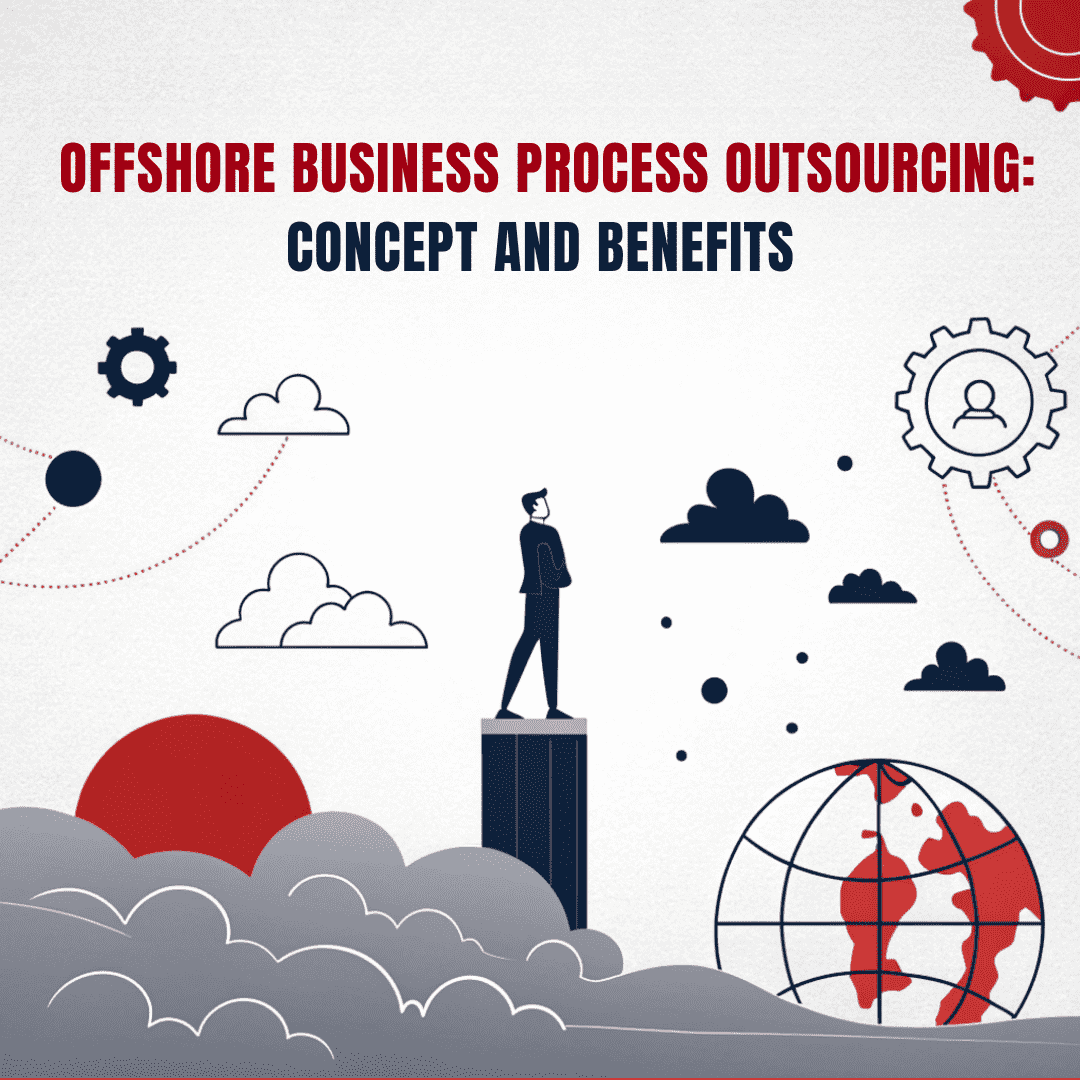CATEGORIES
#Entrepreneurial Mindset #Entrepreneurship #TechnologyOverview:
- Offshore Business Process Outsourcing (BPO) enables companies to delegate non-core tasks to overseas providers, enhancing efficiency and reducing costs.
- Benefits of Offshore BPO include cost savings, global talent access, 24/7 operations, and increased scalability.
- While Offshore BPO offers advantages, challenges like communication barriers, data security risks, and quality control must be managed.
- Future trends in Offshore BPO include AI integration, digital transformation, strategic partnerships, and a focus on sustainability.
Offshore Business Process Outsourcing (Offshore BPO) is a strategic business practice where companies delegate specific non-core business functions to external service providers located in foreign countries. This outsourcing model allows businesses to leverage global talent and resources, enhancing operational efficiency and reducing costs. For example, companies in North America often outsource customer support or IT services to countries such as India or the Philippines. According to Statista, the global Business Process Outsourcing (BPO) market is projected to reach approximately $414.81 billion in revenue in 2025, this indicates the growing demand for Offshore BPO solutions. Girl Power Talk helps businesses navigate Offshore BPO opportunities by connecting them with expert service providers that maximize value while ensuring quality service.
What Is Offshore Business Process Outsourcing?
Business Process Outsourcing (BPO) is the practice of contracting specific business processes or functions to external third-party providers. These functions are typically non-core tasks, such as customer support, data management, and accounting, that can be handled more efficiently by specialists.
Offshore vs. Nearshore Outsourcing
While Offshore BPO involves outsourcing to distant countries, often with significant time zone differences, Nearshore BPO refers to outsourcing services to nearby countries that share similar time zones and cultural traits. For instance, a U.S.-based company might outsource to Mexico, while an offshore model might involve outsourcing to India or the Philippines.

What Are the Benefits of Offshore Business Outsourcing?
Cost Savings
Offshore outsourcing allows businesses to save on infrastructure, technology, and training expenses by leveraging lower labor costs in other countries. For example, outsourcing customer service to India can reduce operational costs by as much as 50% compared to hiring locally.
Global Talent and Expertise
By outsourcing business functions offshore, companies can work with skilled professionals in industries such as IT, finance, and customer support. Offshore outsourcing gives businesses access to specialized talent that may not be available locally to enhance the overall quality of service.
Scalability and Flexibility
Offshore BPO offers companies the flexibility to scale operations quickly and adapt to changing market demands. With flexible contracts and a global workforce, businesses can adjust their outsourcing needs without the burden of recruiting and training additional staff in-house.
24/7 Operations
One of the key advantages of Offshore BPO is the ability to leverage time zone differences for round-the-clock service. Companies can operate continuously by outsourcing tasks to offshore partners located in regions with different working hours. Girl Power Talk connects businesses with trusted offshore providers to ensure seamless, 24/7 operations that meet customer demands at any time.
Faster Time-to-Market
By outsourcing routine tasks, companies can focus on their core activities, such as product development and innovation. Offshore BPO allows businesses to bring products and services to market faster, enhancing their competitive edge.
Innovation and Global Competitiveness
Outsourcing business functions offshore can lead to fresh perspectives from diverse teams. These new insights can fuel innovation, helping businesses stay ahead of the competition and adapt to industry changes. Offshore BPO allows companies to stay competitive in the global market by embracing diverse solutions and cutting-edge technologies.
Efficiency and Profitability
Offshore BPO streamlines processes to integrate advanced technologies that improve efficiency and reduce waste. As businesses enhance their operational capabilities through outsourcing, they become more profitable and better positioned for growth.

What Are the Business Processes Commonly Outsourced?
Some common business processes that companies often outsource offshore include:
1. Back-Office Functions:
-
- Accounting and Payroll: Bookkeeping, accounts payable/receivable, payroll management.
- IT Services: Network management, helpdesk support, software development, database administration.
- Human Resources (HR): Recruitment, payroll and benefits administration, compliance with labor laws.
- Data Entry and Administrative Tasks: Data entry, scheduling, and document management.
2. Front-Office Functions:
-
-
- Customer Support: Improving customer satisfaction and reducing operational costs by outsourcing to regions with lower labor costs.
- Sales and Marketing: Lead generation, content creation, and digital marketing.
- Logistics: Tracking, carrier sales, and inventory management.
-
What Are the Major Offshore BPO Destination Countries?
Several countries have become top offshore BPO destinations due to their skilled workforces, cost-effectiveness, and supportive business environments:
1. India: One of the largest and most established offshore outsourcing markets, offering a wide range of services, including IT, BPO, KPO, and R&D. According to a report by KPMG and ASOCIO, India’s IT-BPO industry was projected to reach USD 285 billion by 2020, with India serving approximately 51% of the global sourcing demand at that time.
2. The Philippines: Known for its highly educated workforce and excellent English proficiency, the Philippines is an ideal destination for customer service and call center outsourcing. The country has also expanded into IT and digital marketing outsourcing.
3. China: A global leader in manufacturing and technology, China offers extensive talent and capabilities for efficient production solutions.
4. Poland: Poland boasts a skilled, multilingual workforce and a favorable business environment for outsourcing, particularly in finance and IT.
5. Brazil: With a robust infrastructure and competitive labor costs, Brazil is an attractive option for companies looking to outsource to Latin America.
6. Ukraine: Ukraine has a large pool of skilled IT professionals and expertise in software development, making it a prime destination for technology outsourcing.

What Are the Challenges of Offshore BPO Outsourcing?
While Offshore BPO offers numerous benefits, there are also challenges to consider:
- Communication Barriers: Language differences and time zone discrepancies can hinder effective communication. A solution is to establish clear communication channels and ensure that both parties are well-aligned.
- Cultural Differences: Cultural misalignments can affect work dynamics and service delivery. To overcome this, companies can invest in cultural training and foster mutual understanding.
- Data Security Risks: Outsourcing can expose sensitive data to potential risks. It’s essential to establish robust data protection measures and comply with data privacy laws.
- Quality Control: Ensuring consistent quality can be difficult with offshore partners. Setting clear performance expectations and regular monitoring is crucial for maintaining high standards.
- Regulatory Compliance: Companies must navigate varying regulations across countries. Legal experts should be consulted to ensure compliance with local and international laws.
How to Build an Effective Offshore BPO Strategy?
To build a successful Offshore BPO strategy, businesses should:
1. Assess Processes for Offshoring: Identify the tasks that can be effectively outsourced without compromising quality.
2. Choose the Right Offshore Model: Decide between Offshore, Nearshore, or Onshore BPO based on your business needs.
3. Select the Right Location: Choose an offshore destination that offers the required skills, cost efficiency, and regulatory compliance.
4. Select a Suitable BPO Partner: Work with a reputable BPO provider with a proven track record.
5. Develop a Detailed Contract: Create clear contracts with defined expectations and service level agreements (SLAs).
6. Focus on Monitoring and Evaluation: Regularly evaluate your outsourcing partner’s performance to ensure goals are being met.
7. Prioritize Communication and Cultural Alignment: Ensure strong communication and alignment between your company and the offshore provider.
Girl Power Talk offers expert advice and support to businesses looking to implement an effective Offshore BPO strategy, this ensures a smooth transition and long-term success.

What are the Future Trends in Offshore BPO?
The future of Offshore BPO will be shaped by several trends:
- Adoption of Advanced Technologies: The integration of AI, automation, and machine learning will optimize BPO operations, improving efficiency and reducing costs.
- Digital Transformation: Companies will increasingly adopt digital tools and platforms to enhance the outsourcing process, including cloud computing and data analytics.
- Strategic Partnerships Over Transactional Relationships: Businesses will focus on forming long-term, strategic partnerships with their BPO providers, rather than transactional, short-term engagements.
- Customized and Specialized Services: As competition increases, businesses will demand more tailored BPO services that meet their unique needs and challenges.
- Emphasis on Sustainability: Companies will place greater importance on sustainability to ensure that their offshore partners adhere to eco-friendly practices and corporate social responsibility (CSR) standards.
Conclusion:
Offshore Business Process Outsourcing continues to evolve as a key strategy for companies looking to improve efficiency, reduce costs, and remain competitive in a globalized market. By understanding its benefits, challenges, and future trends, businesses can effectively leverage Offshore BPO to drive growth and success.


